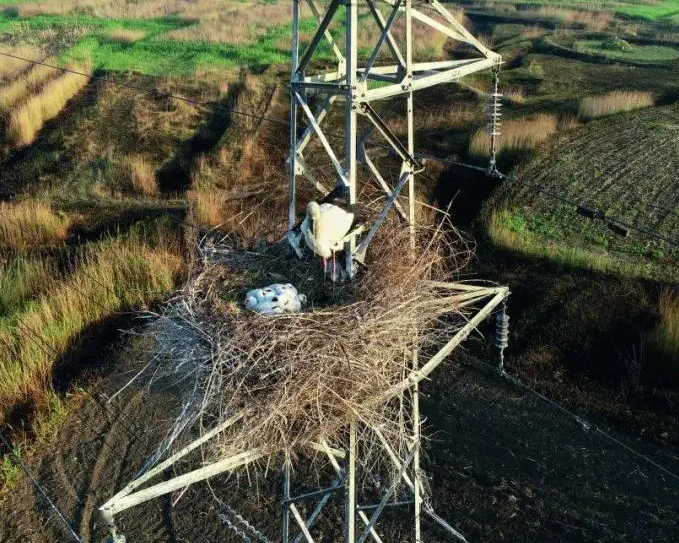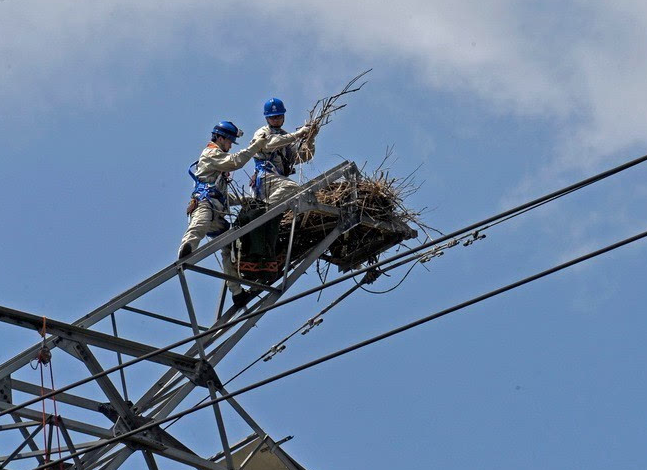Birds are extremely wary and easily startled, so they usually stay away from crowded places, which makes isolated pylons/towers/poles/substations on the power grid super ideal "playgrounds" + "homes" for birds to stop by.
However, in addition to the "bird damage" has also become the daily elimination of the power company's priorities, especially insulators, towers above the bird's nest cleanup, but also the focus of the focus of the focus.
How is it that the two conflict in the opposite direction?
The reason is that bird's nests are usually made up of conductive materials such as tree branches, grass blades and iron wires, which may bridge different potential parts of the equipment, resulting in short circuits or leakage. This will not only reduce the reliability of power supply to the grid, but may also cause safety incidents such as fire. Secondly, the uric acid component of bird droppings has certain corrosive properties, and long-term accumulation will have a corrosive effect on the metal parts of the power equipment, accelerating the aging of the equipment and thus shortening its service life.
In response to this situation, power companies have taken a variety of measures to reduce the impact of birds on the power grid. For example, the installation of bird repellers, which disrupt the habits of birds by emitting sound waves of a specific frequency or other means to force them to leave. There is also the use of non-lethal physical barriers, such as bird-proof spikes or special mulch nets, to discourage birds from nesting on critical equipment.
While these measures have alleviated the problem to some extent, they have also created new challenges. For example, how to balance the effect of bird repellent with the protection of bird ecosystem? Shenzhen Dingxin Wisdom Technology has proposed a bird roosting platform (bird house). , that is, various types of "artificial bird nests", through the installation of the deployment, can guide the birds to "move in" on their own.
By promoting a shift from "bird-repelling" to "bird-roosting", the birds will be given a place to stay, and in turn will be "retained" and prevented from building nests and defecating.






